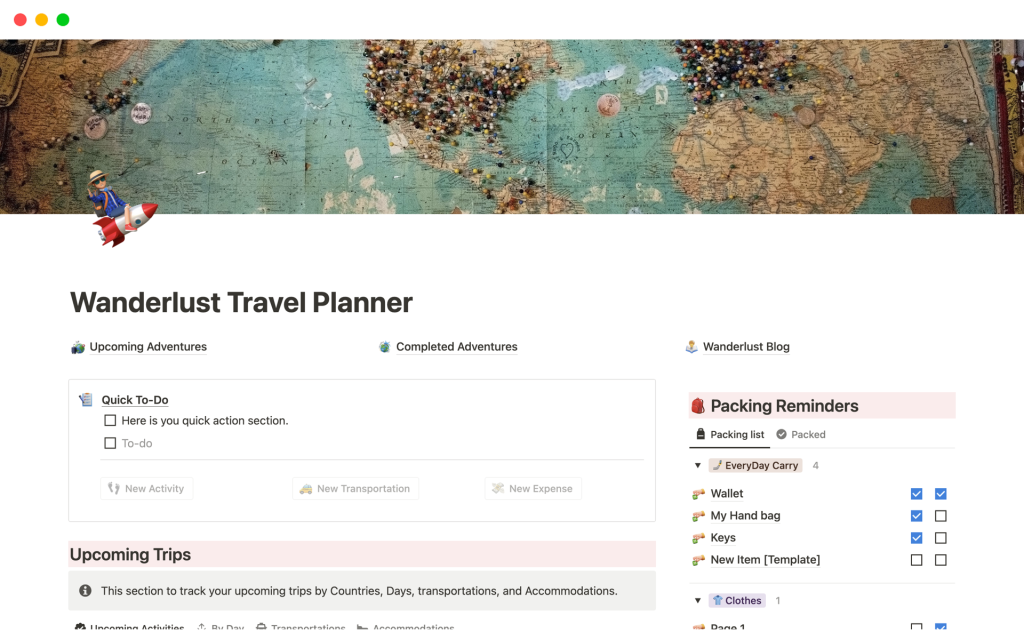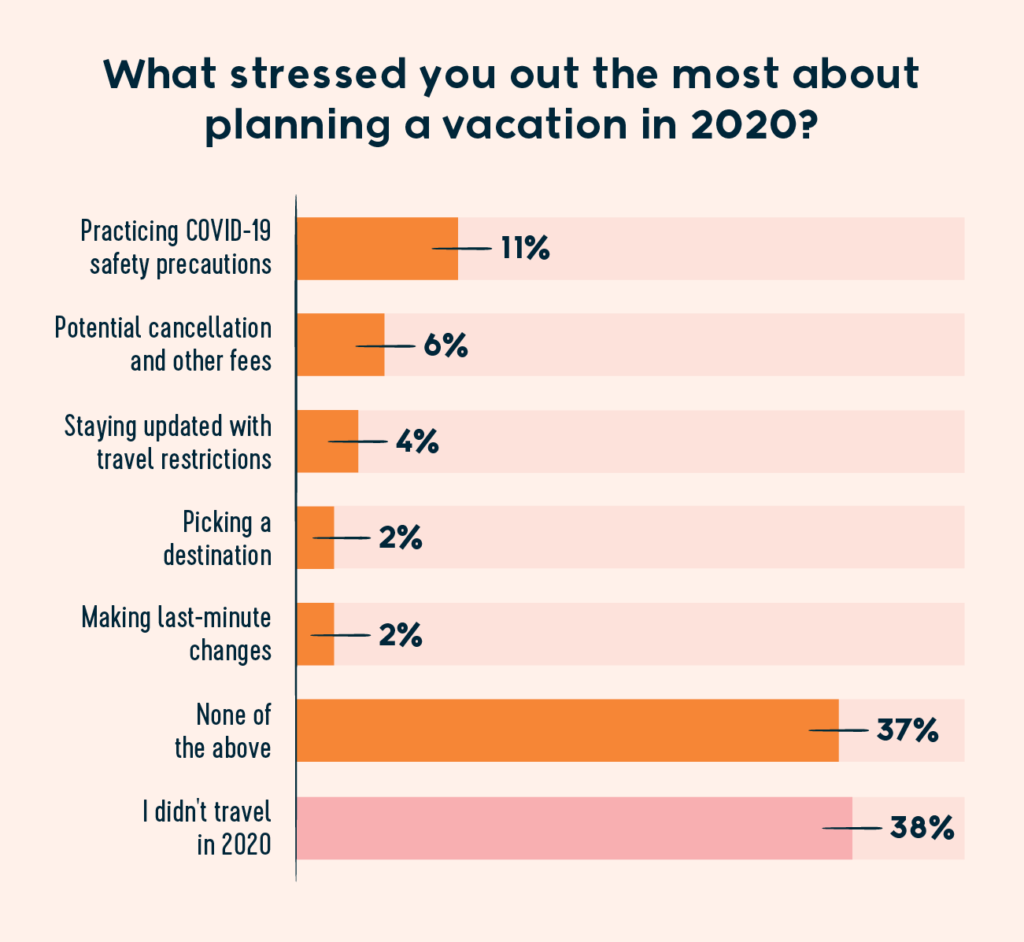Travel Planning is Stressful
Introduction
Dear Readers,
Welcome to our article on the topic of travel planning and the stress it can cause. We understand that planning a trip can be overwhelming and exhausting, which is why we have decided to delve into this subject and provide you with valuable insights and tips to make your travel planning experience smoother and more enjoyable. So, sit back, relax, and let us guide you through the world of travel planning!
Travel planning is an essential part of any trip, whether it’s a weekend getaway or a month-long adventure. It involves researching destinations, booking accommodations, arranging transportation, creating itineraries, and managing budgets. With so many tasks to handle, it’s no wonder that travel planning can become stressful.
In this article, we will explore the what, who, when, where, why, and how of travel planning stress. We will also discuss the advantages and disadvantages of travel planning, provide answers to frequently asked questions, and offer concluding remarks to help you take action in your travel planning endeavors.
What is Travel Planning?
Travel planning refers to the process of organizing and preparing for a trip. It entails making decisions about destinations, accommodations, transportation, and activities, among other things. Travel planning can be done individually or with the help of travel agencies or online platforms.

Image Source: ctfassets.net
Travel planning involves extensive research, comparing prices, checking reviews, and considering various factors such as weather, local customs, and visa requirements. It requires attention to detail and careful consideration of personal preferences and budget constraints.
Understanding the Stress of Travel Planning
Travel planning can be stressful due to several reasons. Firstly, the abundance of choices and information available can be overwhelming. From countless destination options to numerous accommodation choices and airline deals, making decisions can become a challenging task.
Secondly, the fear of missing out or making the wrong choices can add to the stress. With limited vacation time and resources, travelers want to ensure that they make the most of their trip and have memorable experiences. The pressure to plan the perfect itinerary can lead to anxiety and indecisiveness.
Thirdly, the logistical aspects of travel planning, such as booking flights and accommodations, can be time-consuming and frustrating. Dealing with online travel platforms, coordinating schedules, and managing budgets can be overwhelming, especially when unexpected changes or issues arise.
Lastly, the anticipation and expectations associated with travel can also contribute to stress. Travelers may have high hopes and specific visions of their trip, and any deviation from those expectations can lead to disappointment or anxiety.
Who Experiences Travel Planning Stress?

Image Source: railrocker.com
Travel planning stress can affect anyone who embarks on a trip, regardless of their experience or expertise. From first-time travelers to seasoned adventurers, the process of planning and organizing a trip can be equally challenging and stressful.
Individuals who prefer to have control over their travel arrangements may experience additional stress as they take on the responsibility of making all the decisions. On the other hand, those who rely on travel agencies or tour operators may still face stress due to the pressure of finding the right agency and trusting them with their travel plans.
When Does Travel Planning Stress Occur?
Travel planning stress can occur at different stages of the travel journey. Initially, it may start when deciding on a destination and figuring out the best time to visit. Later on, stress can arise when researching accommodations and transportation options.
The peak of travel planning stress often coincides with the booking process. Securing flights and accommodations while also considering budget limitations and travel dates can be highly stressful. Additionally, last-minute changes or unforeseen circumstances can intensify the stress, especially when they require alterations to the already established plans.
Where Does Travel Planning Stress Occur?
Travel planning stress can occur anywhere, as long as there is an internet connection and access to travel-related information. Whether at home, work, or on the go, travelers can find themselves immersed in the world of travel planning and the accompanying stress.

Image Source: traveldailymedia.com
Furthermore, the stress can extend beyond the virtual realm and into real-life interactions. Communicating with travel agents, coordinating with fellow travelers, and managing expectations with travel companions can all contribute to the stress associated with travel planning.
Why is Travel Planning Stressful?
Travel planning can be stressful due to various reasons. Firstly, the financial aspect plays a significant role. Determining a budget, finding affordable options, and managing expenses can be daunting tasks for many travelers.
Secondly, the fear of the unknown can add to the stress. Travelers often face uncertainty regarding safety, language barriers, cultural differences, and unfamiliar surroundings. These factors can make the planning process more challenging and anxiety-inducing.
Thirdly, the pressure to create the perfect itinerary and have a flawless trip can be overwhelming. Travelers want to make the most of their limited time and resources, which can lead to high expectations and perfectionism.
How to Cope with Travel Planning Stress?
To alleviate travel planning stress, it’s important to approach the process with a systematic and organized mindset. Here are some tips to help you cope with the stress:
1. Start early: Give yourself plenty of time to research, compare options, and make decisions. Starting early will reduce the pressure and allow for more flexibility in your planning.
2. Prioritize and delegate: Determine what aspects of travel planning are most important to you and focus your energy on those. Delegate tasks to fellow travelers or travel agencies, if possible, to lighten the load.
3. Break it down: Divide the planning process into smaller, manageable tasks. Tackle one aspect at a time, such as booking accommodations or researching activities, to avoid feeling overwhelmed.
4. Seek advice and recommendations: Reach out to friends, family, or online communities for travel advice and recommendations. Hearing about others’ experiences can provide valuable insights and ease some of the decision-making stress.
5. Be flexible: Accept that not everything will go as planned and embrace the unexpected. Leave room for spontaneity and be open to new experiences, even if they deviate from your initial itinerary.
Advantages and Disadvantages of Travel Planning
Advantages of Travel Planning
1. Flexibility: By planning your trip in advance, you can have more control over your itinerary and make adjustments based on your preferences.
2. Cost savings: Planning ahead allows you to take advantage of early booking discounts, compare prices, and find the best deals on flights, accommodations, and activities.
3. Peace of mind: Having a well-thought-out plan can reduce stress and provide a sense of security, knowing that your trip is organized and all necessary arrangements have been made.
4. Discover hidden gems: Through thorough research, you can uncover lesser-known destinations, unique experiences, and off-the-beaten-path attractions that may not be readily available in traditional travel guides.
5. Efficient use of time: Planning your itinerary ahead of time ensures that you make the most of your trip and optimize your time at each destination.
Disadvantages of Travel Planning
1. Rigidity: Overplanning can leave little room for spontaneity and flexibility. Itineraries may become too packed, and the pressure to stick to a schedule can diminish the sense of freedom and adventure.
2. Unrealistic expectations: Excessive planning can lead to high expectations, and when things don’t go as planned, it can result in disappointment and frustration.
3. Missed opportunities: Focusing too much on the planned itinerary may cause you to overlook unexpected opportunities or local recommendations that could enhance your travel experience.
4. Time-consuming: Planning a trip requires a significant amount of time and effort. Extensive research, comparing options, and making reservations can be time-consuming, especially for individuals with busy schedules.
5. Stress and pressure: The responsibility of planning every aspect of a trip can be overwhelming and stressful, particularly when unexpected challenges arise or when traveling with a group.
FAQs (Frequently Asked Questions)
1. Is it necessary to plan every detail of my trip in advance?
No, it’s not necessary to plan every detail of your trip in advance. It depends on your personal preferences and travel style. Some people prefer to have a well-structured itinerary, while others enjoy a more spontaneous approach. However, it is recommended to at least have a general outline to ensure a smooth travel experience.
2. How can I avoid feeling overwhelmed when researching destinations and accommodations?
Start by narrowing down your options based on your interests, budget, and time constraints. Read reviews, reach out to fellow travelers, and consult reliable travel websites or blogs for recommendations. Breaking down the research process into smaller tasks can also help prevent feeling overwhelmed.
3. What should I do if unexpected changes occur during my trip?
Remain flexible and adapt to the new circumstances. Have backup plans and alternative options in mind, so you can easily adjust your itinerary if needed. Stay calm and make the necessary arrangements to ensure a smooth continuation of your trip.
4. How can I manage travel planning stress when traveling with a group?
Communication and compromise are key when traveling with a group. Involve everyone in the planning process and consider their preferences and limitations. Delegate tasks to distribute the workload and ensure that everyone’s needs are taken into account.
5. Is it worth using a travel agency for trip planning?
Using a travel agency can be beneficial if you prefer to have professional assistance and guidance. Travel agencies have expertise in planning and organizing trips, and they can provide valuable recommendations and handle logistical details. However, it’s important to research and choose a reputable agency to ensure a positive experience.
Conclusion
In conclusion, travel planning can indeed be a stressful endeavor. The abundance of choices, fear of making the wrong decisions, logistical challenges, high expectations, and uncertainties can all contribute to the stress associated with planning a trip. However, by approaching the process with a systematic mindset, seeking advice, and embracing flexibility, you can alleviate some of the stress and make your travel planning experience more enjoyable.
Remember, the purpose of travel planning is to create a well-organized itinerary that suits your preferences and allows for a smooth travel experience. So, take the time to research, make informed decisions, and be open to unexpected opportunities along the way.
We hope that this article has provided you with valuable insights and tips to navigate the world of travel planning. Happy planning and safe travels!
Final Remarks
Travel planning is indeed a stressful task, but it doesn’t have to take away from the excitement and joy of traveling. By approaching it with the right mindset and utilizing the resources available, you can minimize the stress and maximize the rewards of planning your next adventure.
Remember, the key to successful travel planning is to be well-prepared, flexible, and open to new experiences. Don’t let the stress overshadow the anticipation and joy of exploring new destinations, immersing yourself in different cultures, and creating lasting memories.
So, embrace the challenges, take advantage of the opportunities, and embark on your travel planning journey with confidence. Bon voyage!